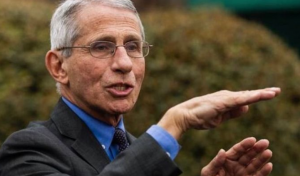The Delhi High Court came down heavily on the AAP government on Tuesday over its “failure” to check black marketing of oxygen cylinders and crucial medicines needed by COVID-19 patients and said if the state cannot handle the situation, it will ask the central government to take over gas refiller units as it can’t let people die.
During an over three-hour hearing on the matter relating to oxygen crisis and shortage of medicines to treat COVID-19 patients in the national capital, the court observed that the “problem lies with the Delhi government” and directed nodal officer Udit Prakash to ensure supply of oxygen by cylinders to hospitals and nursing homes “without fail”.
Also Read| ‘National crisis’: SC says its suo moto on COVID not to supplant HC cases
“Enough is enough. If you can’t do this, tell us, we will ask the central government to take over these (oxygen refilling) plants. We can’t let people die,” a bench of justices Vipin Sanghi and Rekha Palli said and directed the city government to take over plants of refillers of oxygen cylinders in case they fail to maintain supply to hospitals.
It issued contempt notices to fives suppliers for not appearing in the hearing despite orders, saying “it is not the time to become vultures”.
Also Read| On COVID vaccines pricing, SC’s 3 questions to Centre, then a reminder
The court said the Delhi government’s entire system has failed as black marketing of oxygen cylinders and crucial medicines for treating COVID-19 patients is going on.
The Delhi government has left re-fillers “to have a free run” even as hospitals “are crying hoarse for oxygen”, it said.
“Our confidence (in you) has shaken. Mr. Rahul Mehra (Delhi government counsel) get your house in order,” the court said.
It also directed the government to file a report on the number of deaths of COVID-19 patients in hospitals and nursing homes due to the shortage of oxygen, saying their families need to be compensated as this was the responsibility of the state.
Besides, it asked the Delhi government to take account of stock and sale of medicines such as Remdesivir, Fabiflu and Tocilizumab at hospital pharmacies, as people are unable to get these drugs which are being sold at much higher rates in the black market and to do a random audit of supplies.
Also Read| Serum Institute, Bharat Biotech asked to lower prices of COVID vaccines: Report
The court said even after supplying tonnes and tonnes of oxygen no account is maintained by authorities about supplies.
“This is leading to an artificial shortage of oxygen on one hand and black marketing on the other hand,” the bench said, adding that the reluctance of refiller units to provide information to the government makes it obvious that they do not want to maintain transparency.
The high court said the contempt notices will be served to fillers through the Delhi government nodal officer.
“Are you aware of black marketing? Is it a good human gesture? It is not the time to become vultures,” the bench said to oxygen refillers.
The court directed the city government to check black marketing of oxygen cylinders and medicines and address the issue of oxygen distribution to hospitals and individuals here.
The bench said in today’s situation nobody can be allowed to take public for a ride and directed the government to file an affidavit on the status of oxygen stocks available with gas refillers by Wednesday morning.
“Be sure if lives are lost, we are going to haul up their officers. Mr. Tushar Mehta (Solicitor General) was right that the situation is not like what is shown here and the problem lies with the Delhi government.
“You are the administrators, you know how to exercise your powers and how to administer things,” the bench said.
Another refiller who was present in the hearing claimed that he was ready to supply oxygen cylinders to several hospitals but the institutions were saying they have arranged it from some other vendor or that the Delhi government was not sending him the details of the hospitals where he has to make the supplies.
The court, however, refused to agree with him and threatened to “arrest him and hang him” in case any death occurs due to his negligence.
The high court also directed the Delhi government to take over the plant of oxygen refiller ‘Seth Air’ for not supplying gas to hospitals and “probably selling” it in the black market, and made it clear that the same action should be taken with regard to other suppliers who refuse to fall in line.
“Out of 400 metric tonnes of oxygen, 20 metric tonnes is going to ‘Seth Air’ and its name is not mentioned in the list of refillers issued by the Delhi government. He is such a big supplier. There is something fishy,” it said.
“It is clear to us that the Delhi government has to pull up its socks to address the distribution of not only liquid medical oxygen to big hospitals but also oxygen cylinders used by smaller hospitals and nursing homes and also individuals,” it said.
The bench said this is a mess that the state government has been unable to resolve.
“You have the power, take action against those engaging in black marketing of oxygen cylinders and medicines,” it said.
The court also agreed with a counsel’s suggestion that an online portal be created by the government on the distribution of drugs and update the details of stock, sale and names of purchasers on real-time basis so that the aspect of availability is put to all and transparency is maintained.
The court’s stinging observations came on desperate pleas by various private hospitals complaining that they were not getting enough oxygen supplies including cylinders and they would run out of stock shortly.
Another issue was related to a government circular that all patients reaching the hospitals should be attended to immediately and the process should not take more than 10 minutes and there should be a provision of oxygen and medicines.
One of the hospitals said they are already catering to more patients in the emergency and they do not have space and oxygen supply.
The high court asked the Delhi government if the said circular was being followed at its hospitals and it should not be issued meaninglessly as it creates an impediment in performing duties by medical staff.






